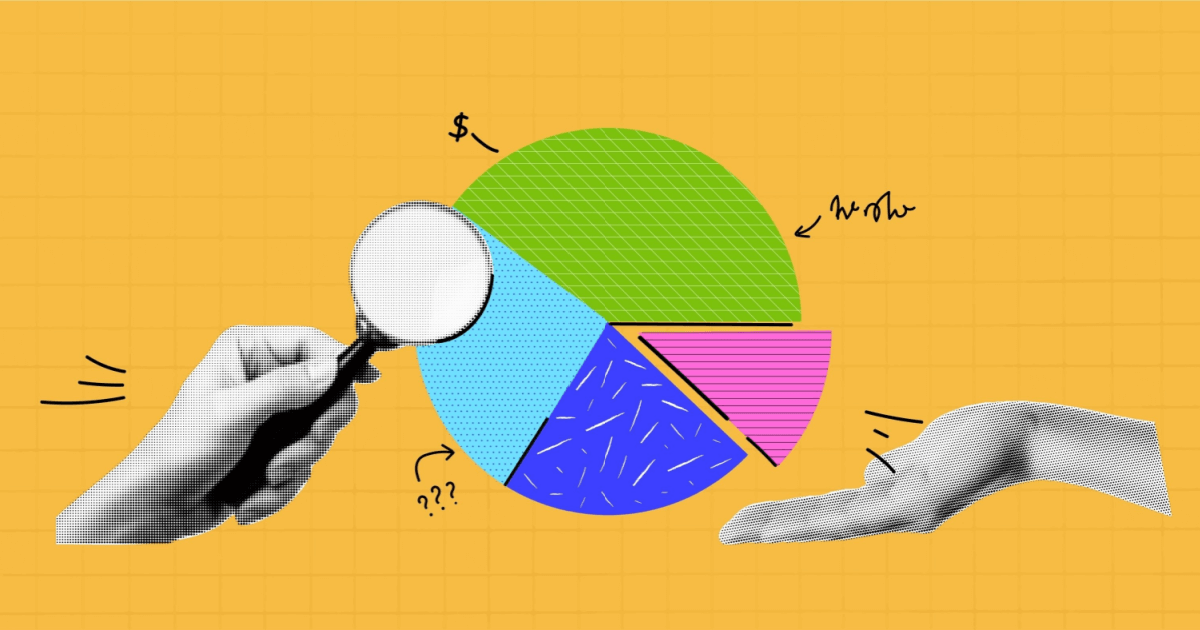
For influencer marketing to be successful enough to drive a solid ROI, you need insights about the influencers or content creators you work with and campaign performance. Luckily, there’s various influencer analytics tools that simplify this process and collate data beyond followers count.
Many brands leverage influencer marketing analytics tools because of their in-built capability to discover influencers, track crucial statistics, and provide content insights. These platforms also easily monitor and track how well influencer stories have performed in the past by calculating likes, clicks, comments, impressions, helping you to decipher the success of your campaigns.
Let’s look at the types of influencer analytics, the benefits, and the best tools to power up your influencer strategy.
Chapters:
- What is influencer analytics?
- 7 types of influencer analytics metrics
- Benefits of using influencer analytics tools
- The best influencer analytics tools on the market
- Influencer analytics tools FAQs
- Getting started with influencer analytics
What is influencer analytics?
Influencer analytics is the process of analyzing performance metrics like audience demographics, engagement rates, reach, impressions, and conversions to evaluate the impact of an influencer. Influencer analysis allows marketers to make data-driven decisions, assess the return on investment (ROI), and make adjustments to achieve better results.
Influencer analytics can be carried out using various tools and platforms that provide data and insights, allowing marketers to track and analyze influencers’ performance on social media channels.
Robust influencer analytics tools offer influencer search engine, engagement metrics, audience insights, fraud detection, and more such features to help marketers measure and enhance the success of their influencer campaigns.
7 types of influencer analytics metrics
Having a tool to assist your influencer marketing strategy is all well and good, but it’s a bit pointless if you don’t know the metrics you should be addressing,
1. Reach
The context of reach falls under two categories. First is the number of times social media users view a post or a story on Instagram or Facebook — a higher number indicates higher engagement. You can also gauge reach through the follower base of an influencer.
There’s different types of influencers, ranging from nano to mega, based on their follower count.
2. Impressions
Impressions is a metric highlighting the number of times a particular reel, story or post is displayed on a user’s Instagram feed, indicating the relevance of the content among its followers base.
3. Engagement
Engagement highlights how an influencer’s followers base interacts with the content. It includes clicks, comments, shares, questions and likes. Getting high impressions but low engagement (there’s no comments, likes, or shares) reflects on the influencer’s authenticity. Engagement hints at how people interact with the influencers and want to learn more about the product.
4. Earned media value
Earned media value (EMV) is an overall estimate of the engagement and interaction driven by each post published by an influencer mentioning your product. It measures word-of-mouth generated by the influencer and tells you what kind of content resonates positively well with their audience.
5. Conversions
The consumer journey ends up in a conversion, where the shopper has made their mind to purchase the product. You can track conversions through referral links and customised discount codes. These automated influencer analytics tools help track the interactions done through these links and sales driven by discount codes.
6. Audience demographics
An insight into the influencer’s followers, including their age, gender, location, interests, and other relevant information, helps businesses determine if the audience aligns with their target customers. With such data, you can reach out to influencers who can connect with the brand’s desired customer segment.
7. Competitive Analysis
Metrics like competitive analysis give marketers an edge over their competitors as they can view influencers working with similar brands. You can choose to work or not work with influencers who work with competing companies.
Benefits of using influencer analytics tools
- Data-driven decision making. Influencer analytics tools remove the guesswork from creator marketing by providing detailed data on influencer profiles. Decisions like which influencers to collaborate with, how to optimize campaigns, and where to allocate the resources for maximum impact become more accurate with data to back them.
- Recruiting the right creators. Many brands struggle to find relevant influencers to run a campaign. The right analytics tool can easily find the right influencer for you to collab with.
- Audience Insights. Paint a clear picture of your audience’s interests, sentiments, engagements, and more. Having a clear understanding of your audience helps you create better content that resonates.
- Evaluate influencer performanceI. Influencer analytics tools allow you to share affiliate links and promo codes that help track creator performance across social media in terms of traffic, leads, and conversions.
- Budgeting. You save countless man-hours and resources using influencer analytics tools to identify the right influencers aligning with your brand value, preventing you from spending your marketing budget on manual execution.
- Brand Safety. Ensure brand safety by spotting fake influencers or those using follower bots to show a higher follower count. Tools vet influencers, using several filters, to check negative sentiments found in their posts.
The 9 best influencer analytics tools on the market
Here’s a list of, in our opinion, the best influencer analytics tools on the market.
GRIN
Grin’s creator performance tracks the performance of every post, such as engagement, clicks and conversions. Grin calculates credibility scores based on influencer engagement and other key metrics to confirm a genuine social media account to identify the right talent for a brand. This process helps connect brands with talents having a highly engaged follower base.
Yoloco
Yoloco provides advanced analytical reports by rating the audience base of an influencer. It targets the location of the influencer and its audience. Through their algorithm, they find out the approximate coverage of the post and what the brand’s influencers have already advertised. They have an Instagram analytics app for marketers giving fake or real followers details.
Upfluence
Like other platforms, Upfluence helps you analyse other performance metrics on social media channels by calculating their engagement rates, comments, likes, views, shares and comments. It lets you understand how their engagement has increased or decreased in the last few years.
With their Chrome extension, you can upload a new influencer you might have spotted on social media and easily add them to your list. It also enables you to easily import a list of previous influencers to the platform you have worked with.
Hypeauditor
HypeAuditor conducts influencer analytics for Instagram, YouTube, TikTok and Twitch to help you choose the perfect creator. Besides audience demographics like location, age, gender and interest, Hypeauditor uses AI to detect low-quality audiences by analyzing the follower growth and engagement authenticity.
Their influencer marketing analytics tool calculates audience reachability. The engagement analysis checks comments’ authenticity and detects engagement pods. It also looks at suspicious growth patterns and whether influencers use follows/unfollow to grow their audiences.
Keyhole
Keyhole ensures transparency by highlighting fake followers and negative sentiments. It believes in generating credible data and discovering influencers relevant to your industry. Through their tool, you can figure out authentic conversations, engagements and sentiments to find those aligning with your goals.
Their influencer analytics tool unlocks insights about influencers’ social media accounts. You don’t have to take screenshots or update spreadsheets to analyse results. You can easily find out which posts resonate most with your audience and drive impact through data.
Modash
Modash is an influencer analytics tool that helps brands and agencies identify and analyze relevant influencers for their campaigns. With Modash, users can search for influencers based on criteria like audience demographics, engagement rates, and content themes. The platform provides detailed analytics on an influencer’s performance and helps users track the success of their campaigns by monitoring key metrics such as reach, impressions, and engagement.
Some of the platform’s key features include campaign management, audience insights, content management, and competitor analysis. Its user-friendly interface makes it easy for users to navigate and manage their campaigns.
trendHERO
trendHero is another influencer analytics tool helping businesses and agencies find and analyze influencers for their marketing campaigns. trendHero offers a range of features, including influencer comparison, audience insights, data analytics, campaign management, and a customizable dashboard.
The platform’s AI-powered recommendation engine can automatically suggest influencers and content ideas based on a user’s campaign goals and target audience, saving time and effort for users who are new to influencer marketing or looking for fresh ideas.
Bazaarvoice affable.ai
Bazaarvoice affable.ai is an all-in-one, AI-powered influencer marketing platform with an in-built technology to vet millions of influencers based on their age, location, gender, language, follower count etc. We use multiple metrics to analyze how influencers can impact your objectives — by spotting fake influencers and those with low-quality audiences.
With Bazaarvoice affable.ai, you’re easily able to find creators, manage your collaborations, track campaign metrics, and measure your performance.
Celisse Ng, Marketing Manager, L’Occitane
Our influencer analytics tools give an estimated engagement, reach and an estimated media value of a content creator by scanning through their posts. You can also check audience interest, influencer’s brand affinity, and the number of branded and non-branded content and get a graphical representation of their followers’ growth.
Influencer analytics tools FAQs
The pricing of influencer analytics tools depends on the features, social media channels covered, influencer database, and more such metrics.
Influencer analytics tools use machine learning and AI technology to provide you with the required information. The data is based on estimates and calculations, which can be more accurate than human calculations. Bazaarvoice affable.ai uses public information from influencer profiles and social media to evaluate their performance metrics and share detailed insights with the users.
Social media analytics is a broader term that refers to the process of gathering data and insights from social media platforms to help businesses understand how their content is performing. Whereas, influencer analytics is focused on measuring the effectiveness of influencers within social media marketing campaigns. Influencer analytics includes data on the number of followers an influencer has, their engagement rates, the reach of their content, and the impact of their content on the campaign’s overall success.
Choosing the right influencer analytics tools for your business requires careful consideration of your specific needs and goals. Here’s some key factors to keep in mind when selecting influencer analytics tools: Identify your goals, consider your budge, look for features that match your needs, and check for user-friendliness.
Getting started with influencer analytics
Undoubtedly, identifying the right influencer is the greatest challenge for many brands. Perhaps due to a lack of knowledge about the right influencer analytics tools required to get started.
So, before you strategise for your next influencer marketing campaign, evaluate a tool that will aid your specific needs. Or better yet, try a tool that covers the whole influencer marketing spectrum.
If you’re not sure where to begin, turn to these three influencer marketing case studies to guide your strategy.




